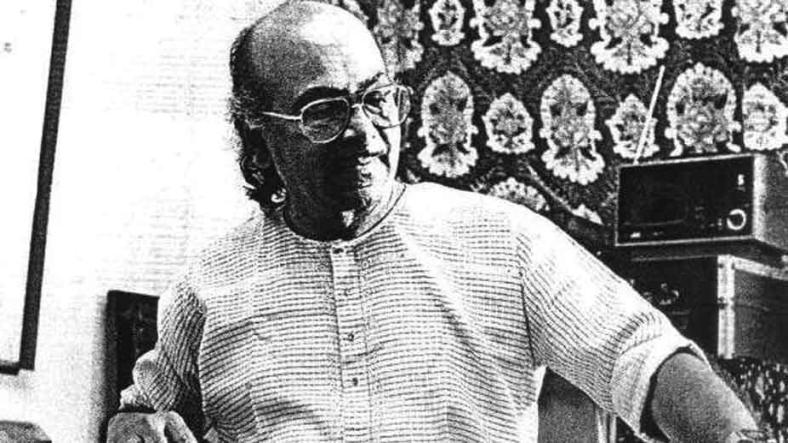Salil Chowdhury was an iconic Indian music composer, lyricist, and poet, best known for his ability to blend Indian folk music with Western classical elements. His contribution to film music, poetry, and social activism set him apart as a multi-dimensional artist.
Early Life and Education
- Born on November 19, 1922, in a small village in West Bengal, Salil Chowdhury was exposed to music from an early age.
- His father, a doctor, had a deep love for music and often played Western classical records at home.
- This early exposure shaped Salil's unique musical style, which combined Indian classical, folk, and Western influences.
- Salil pursued his education at Bangabasi College, Kolkata, where he became involved in leftist movements and used music as a tool for social change.
Contribution to Music and Film Industry
Salil Chowdhury was a musical genius who composed for Hindi, Bengali, Malayalam, Tamil, and Marathi films. His music was known for its symphonic orchestration, intricate melodies, and meaningful lyrics. Some of his most famous compositions include:
- "O Sajna, Barkha Bahar Aayi" (Parakh, 1960) – A timeless Lata Mangeshkar classic
- "Aha Rimjhim Ke Ye Pyare Pyare Geet Liye" (Usne Kaha Tha, 1960) – A melodious composition
- "Zindagi Kaisi Hai Paheli" (Anand, 1971) – A philosophical song sung by Manna Dey
- "Bichua" – A Bengali folk song that gained immense popularity
- "Madhumati" (1958) – One of his best musical works, featuring the evergreen song "Suhana Safar"
He worked with legendary singers like Lata Mangeshkar, Kishore Kumar, Manna Dey, Mukesh, and Yesudas, shaping their careers with his unforgettable compositions.
Literary and Political Activism
- Apart from being a composer, Salil Chowdhury was a poet, playwright, and political activist.
- He was deeply influenced by the Indian independence movement and the struggle of farmers and laborers.
- He was an integral part of the Indian People's Theatre Association (IPTA), where he used music as a medium to voice concerns about social injustice, poverty, and oppression.
- His revolutionary song "Dharti Kahe Pukar Ke" from Do Bigha Zamin (1953) became an anthem of the working class.
Awards and Recognition
For his outstanding contribution to Indian music and cinema, Salil Chowdhury received:
- National Film Award for Best Music Direction (1975)
- Sangeet Natak Akademi Award for his contribution to Indian music
- BFJA Awards (Bengal Film Journalists’ Association) for Best Music Director
Summary
Salil Chowdhury was a musical genius, poet, and social reformer whose compositions transcended generations. His ability to blend Indian folk with Western orchestration and his commitment to social change made him a unique figure in Indian cinema and music. His melodies continue to resonate with audiences, cementing his legacy as one of India’s greatest composers.
Thanks for reading the article, for more great peoples related articles read our peoples blog articles.









